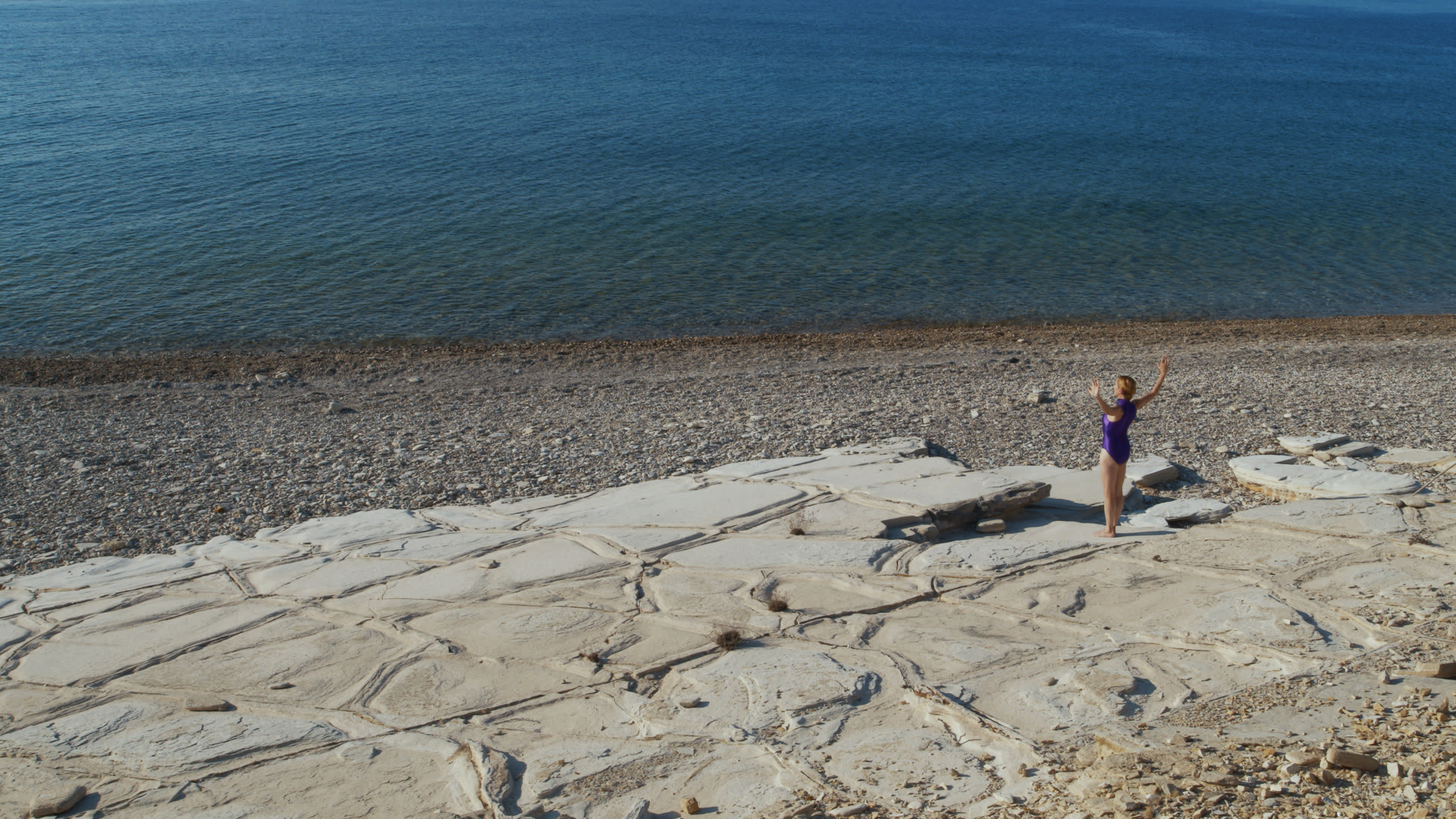Cistern excerpt from Christy Walsh on Vimeo.
Recently selected by the New York Movie Awards, Cistern has been screened in Paris, Rome and Bratislava, where it was a semi-finalist in that city’s International Film Awards.
Inspired by the author’s surrealistic use of empty wells as a conduit between multiple realities, Cistern places the dancer in an empty stone reservoir. Later, in true Murakami style, she suddenly finds herself on a desolate rock formation by the sea. The dance is both an investigation of physical surfaces and a contemplation of the nature of space and time. The recorded passage of chronological time in the dark cistern seems to pass very slowly, even though there is little of it. On the beach, where most of the action takes place, the sense of time is condensed because of the relative sense of freedom. The dancer explores the cistern’s contours, she has a dance with her shadow, the floors, and the walls, but she makes no attempt to leave. She just happens to find a spot on the wall that leads elsewhere. Like one of Murakami’s characters, she is in the cistern by choice, passively awaiting the adventure that will find her if she remains open to the possibility.

